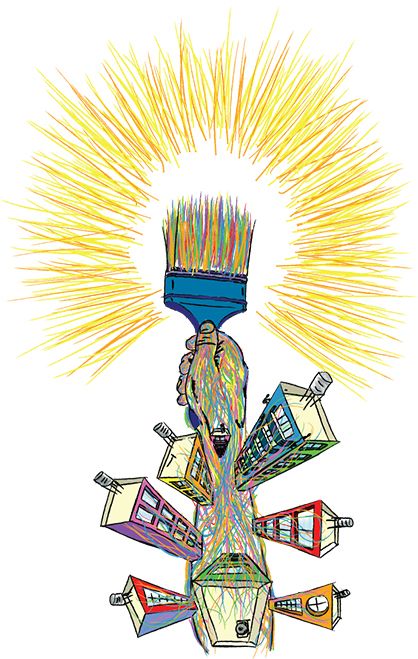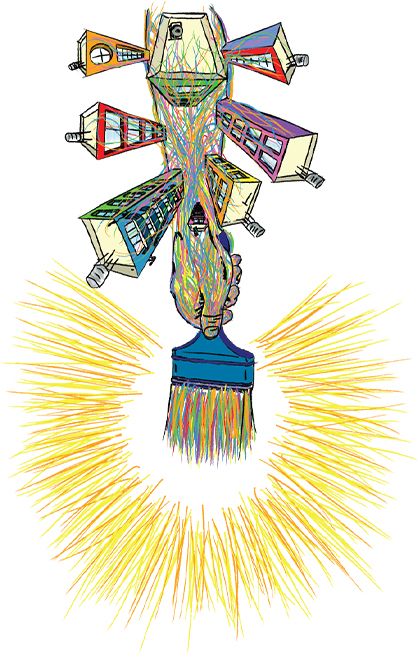LIFE ON MY OWN TERMS

Ram Baht
I started visiting the site regularly, initially with cooked meals, later with ration kits once we were able to procure them. As much as I was observing the workers and trying to gauge who they were, they were observing me. Particularly S who was trying to gauge who I was and why I was there. Eventually he grew less cautious, as I returned each time. At first our relationship was purely functional. I was an outsider in the area but with resources and a means of transport. S is a migrant too, but he had lived in the Horamavu area for the last 5 years and thus knew the lay of the land and where the resources really needed to be distributed. He pointed out that his colony was one of many, and different people he knew lived across the area in similar conditions. Together, we would travel to each of the locations and distribute the kits wherever necessary.
It was on these trips that our relationship grew. We were both equally inquisitive about who the other was. We would share our lives bit by bit, to learn a little more about the other. We spoke of our experiences of home and where we grew up. Both migrants in a new city, our roots proved to be a strong starting point. Migration meant two different things for us entirely. For me it was a privilege, the ability to move and travel and learn in different locations. For S, it was more in terms of necessity and a personal ambition. S grew up in a small village in Uttar Pradesh where his parents were farmers. S and his brother had no intention of following the same route. His brother set up a small shop but S wanted something different and he wanted to do it his own way.
He left home and began painting buildings. With this skill he travelled through Delhi, Maharashtra and now Bangalore to set up and sustain his own life. “I am here to work and make money because there is no real opportunity back home. My brother has a small business but he is struggling. I have my own independent work. I don’t want to be dependent.”
The idea of independence is a space of proximity and distance for myself and S. We both moved out of our own homes and traveled elsewhere to create an independent space to live our own lives. However, for S, it was borne out of a struggle. His need to move away was a requirement in order to progress from his village where he saw little to no opportunity. Whereas in my scenario, independence presented itself as an opportunity. For me this was an option out of many whereas perhaps for him, there was no other option. This difference plays out in the practice of our daily lives.
In the lockdown we were both confined to our homes. The idea of personal space reduced dramatically for us both. But the proximity ends there. I live in an apartment, with my own room, and a sense of privacy. Further, I was able to continue my work.


The sense of confinement was viscerally different for S. “With the lockdown my wife and 2 children and I live in the same room. How is this supposed to work? I just have to sit around all day. I can’t even go to the construction site for work. ” While construction may be permitted in Karnataka the government conveniently forgets that the majority of workers are unorganized and often may not live on site. No provisions were made for their safe transport. Thus, a large number of workers have not been able to go to work. For S, a daily wage worker, this has meant a severe blow to his income. But economics aside, it has also meant a break in his practice. A practice which is a source of pride and is central to his sense of independence. “You have seen my work. Look how well my team is able to finish the building. We will climb and get to every corner. We will go to places where no one else will, just to make sure it is perfect. I have done this work for many years. Very few people can do what I do.With the enforcement of the lockdown, there is a curtailment, not only of wages, but of a sense of self. An aspect I have rarely encountered in the government, media and NGO reports about migrant workers.
During the first lockdown, S’s son who was at the time, in his village, became very ill. He needed to be moved to a private hospital for which S did not have the money. His contractor had not paid him for the last few months and would not compensate for the period of the lockdown. It was at this time that I saw a new side to S. An aggression which I had not known before. “If my son dies, I promise you I will kill the contractor.” This was not a hollow threat. When I met him, his eyes were red and one could tell that his anger had been accumulating. “I only want the money that is owed to me, nothing more. I have done good work for this money. I have worked hard. But even now I am not even able to pay for my son to survive. He (the contractor) has the money, I spoke to the builder. He should give it to me.”
The barriers that stop S from living his life the way he chooses to, is not limited to incidents, but is a part of a wider oppressive structure imposed on the lives of informal workers. The informal nature of the work and weak implementation of labour laws make individuals like him vulnerable as there is no accountability from those who employ him. Migrant workers are often treated as expendable and replaceable. S managed to navigate the issue with his contractor and recuperate his money. Following which, he set up his own practice as soon as the first lock down ended.
For a few months, the situation improved. His business thrived and he reaped the rewards of his hard work. His family moved in with him and life seemed to be getting back on track.Until the next lockdown hit.
I still speak to S on a daily basis. He is resilient nonetheless. He has not lost his will. He is resolute, to live his life on his own terms.
